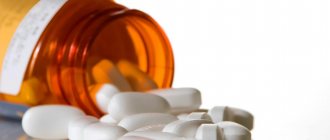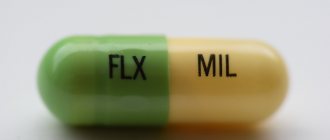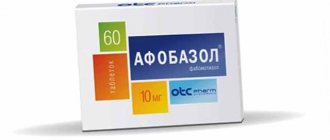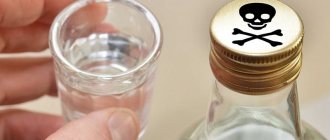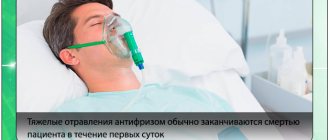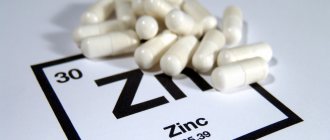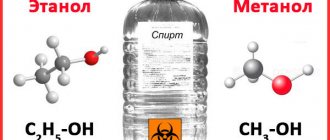A drug overdose is a condition in which such an amount of a psychotropic substance enters a person’s body that it becomes a threat to his health and life. In order to understand what to do in case of a drug overdose, you should look at what factors this condition depends on:
The most dangerous drug poisoning occurs when administered intravenously. Once in the blood, the effect of the substance develops within a few minutes.- The initial state of the drug addict’s body is of great importance. For a person who is weakened and underweight, the likelihood of getting poisoned is much higher.
- Overdose occurs more quickly when using a combination of drugs of different composition, as well as the use of psychotropic drugs together with smoking tobacco or drinking alcohol.
- Poisoning is often caused by products purchased on the streets. They are made in an artisanal way, and in order to make a profit, manufacturers add various toxic impurities, the amount of which no one controls.
- Overdose often occurs in drug addicts when they start using the drug again after a certain break. During this period, tolerance weakens, and an overdose can occur at the dose that the person previously took.
The mechanism of overdose is the effect of drugs on the central nervous system, in particular on its vital centers. They can act in either an overly stimulating or depressing manner. This can, with increased consumption, lead to a complete failure of these structures and the death of a person.
It should also be noted that the peak effect of tablet drugs occurs 1-4 hours after the start of taking them, which is what can lead to an overdose. Moreover, predict. Exactly when it might happen is not possible.
Symptoms of drug overdose
Signs of substance poisoning vary for each specific drug. Sometimes the effectiveness of emergency care will depend on whether the cause of intoxication is correctly identified.
Note!
Before you begin to provide assistance, you need to understand that poisoning is caused by drugs. This may be indicated by pills, a syringe, or powder located near the victim. It is easier to make a diagnosis if it is initially known that the patient is drug addicted.
Heroin
Heroin is a semi-synthetic derivative of opium that is administered intravenously. Within 2 minutes after administration of a high dose of the substance:
- Blood pressure drops sharply;
- Lips and nails acquire a bluish tint;
- Dry mouth;
- The consciousness of the victim, at first confused, then completely disappears;
- Breathing is impaired;
- The pupils narrow.
Desomorphine
Desomorphine is popularly called “crocodile”. “Craftsmen” prepare it from codeine-containing medications. For desomorphine intoxication:
- Vision is lost;
- Speech is impaired;
- Lips turn blue;
- There are attacks of convulsions with the release of foam from the mouth;
- Nausea and vomiting occur;
- Consciousness is lost;
- Breathing becomes difficult and the heart stops.
Amphetamine
Amphetamine is the most common representative of the group of psychostimulants. In case of an overdose, symptoms of overexcitation come to the fore:
- Mental and motor restlessness;
- Aggression;
- Intense headache, dizziness;
- Increased heart rate, arrhythmia;
- Trembling in hands;
- Nausea;
- Dyspnea.
Cocaine
Cocaine is a drug of plant origin that is introduced into the body in different ways: inhalation, injection, or oral. Signs of an overdose include:
- Headache;
- Hand trembling;
- Blue skin;
- Chills, sweating;
- Hallucinations;
- Drying of the oral mucosa;
- Convulsive syndrome.
Since cocaine significantly increases the load on the heart and blood vessels, abuse of this drug increases the risk of developing a heart attack or stroke.
Spice
Spice is a psychoactive smoking mixture similar to marijuana. The signs of his “overdose” are very characteristic:
- A feeling of fear, often accompanied by motor excitement;
- Hallucinations, confusion;
- Increased heart rate, increased blood pressure;
- Respiratory depression.
Butyrate overdose
Sodium hydroxybutyrate is used in medical practice as a sedative and anesthetic. However, if the dose is selected incorrectly, intoxication may develop. Its manifestations:
- Decreased vision clarity;
- Uncontrollable vomiting;
- Agitation, inappropriate behavior;
- Amnesia;
- Decreased heart rate;
- Unconscious state;
- Difficulty breathing.
It is especially dangerous to combine butyrates with alcoholic drinks and antidepressants.
Methadone overdose
Methadone is a synthetic opioid that is used in many countries to treat drug addicts. Poisoning occurs when using a low-quality homemade drug or when the recommended dose is exceeded. Its symptoms:
- Lethargy, drowsiness;
- Nausea, vomiting;
- Convulsions, foam at the mouth;
- Narrow pupils;
- Paleness of the skin;
- Cold clammy sweat;
- Loss of consciousness;
- Cardiac and respiratory arrest.
Lyric overdose
Lyrica is a drug for the treatment of epilepsy and chronic pain syndromes. The following signs indicate the use of too high doses of medication:
- Pupil dilation;
- Excessive sweating;
- Disorientation;
- Dizziness, unsteadiness when walking;
- unclear speech;
- Drowsiness;
- Double vision.
Overdose of promedol
Promedol is widely used in medicine for general anesthesia. Against the background of exceeding the dose, the clinical picture of intoxication unfolds:
- Constriction of the pupils, lack of their reaction to light;
- Uneven, slow breathing, then a complete stop;
- Lethargy, drowsiness;
- Disorientation;
- Depression of consciousness up to coma.
Peculiarities!
Specific symptoms of poisoning with a certain chemical are difficult to identify in the later stages. Due to the suppression of brain functions, the pupils of all patients begin to dilate, breathing and heart function are impaired.
Ecstasy (MDMA)
It is a psychoactive drug of the amphetamine type, traditionally available in the form of tablets. In general, according to doctors, pure MDMA is even safer than alcohol and tobacco, since it is a low-risk recreational substance.
It’s just that now he can’t be found. Pure ecstasy is a thing of the past. What is offered now is most often some kind of mixture of MDMA with heroin, cocaine, LSD, and methamphetamine. Even rat poison is found in the cheapest versions. By purchasing ecstasy of unknown origin, a person risks his life. Because the concentration of the main substance in it will be minimal. And he will have to use as much as possible to achieve the desired effect. The result is an overdose of pills. Possible death.
As a rule, an overdose is manifested by a sudden loss of consciousness. You need to immediately provide assistance - check if the person is alive, provide resuscitation, call an ambulance. To bring him to his senses, you need to cool the body with rubdowns, showers, and applying ice to the body.
Since an overdose of tablets causes severe dehydration, rehydration will be required to restore water balance. “Regidron” will help here - an instant powder that must be diluted with water and given to the victim. This drug effectively restores the water-salt balance in the body.
Until specialists arrive, you need to keep the person conscious. There is no antidote for ecstasy, so the only way to save the victim is to remove the substance from the body. In the hospital, he will be given intravenous detoxification solutions for this purpose.
First aid algorithm for drug overdose
If you find a victim with signs of drug intoxication, you must act strictly according to plan:
- First of all, call an ambulance - the patient needs hospitalization in any case.
- Place the patient on a hard horizontal surface.
- If the person is unconscious, try to bring him to his senses: call loudly, pinch his earlobe firmly, let him sniff a cotton swab soaked in ammonia.
- If the patient comes to his senses, do not let him lose consciousness again: talk, ask about his well-being, reassure him.
- If there is difficulty breathing, the patient must be freed from tight clothing and explained to him how to breathe correctly: the inhalation should be slow, deep, the exhalation should also be leisurely and full.
- If the victim remains unconscious, then the presence of a pulse and breathing must be assessed. If they are absent, they immediately begin providing resuscitation measures - chest compressions, artificial respiration. One mouth-to-mouth breath alternates with 15 chest compressions.
Important!
Before performing artificial respiration, you need to make sure that the patient's airway is clear. The remaining tablets should be removed from the victim’s mouth, vomit should be removed, and the sunken tongue should be pulled forward with a napkin.
Features of the drug
Phenobarbital is a type of barbituric acid. It does not have such strong popularity as citramon, but is part of valocordin and corvalol. Phenobarbital-based drugs are addictive, which is why they are called narcotics. Since all drugs that act on the central nervous system lead first to mental and then to physical dependence. People taking the medicine constantly note that they want to take it at the slightest sign of distress. With regular use of this drug, the substances included in its composition may not have time to be eliminated by the body, and an overdose may occur. The drug is observed in the blood even on the seventh day of testing. In addition, it significantly reduces bilirubin in the blood. It is also advisable to organize rest days while taking this drug. This is again due to the fact that the drug is slowly absorbed into the small intestine and slowly eliminated from the body. Therefore, if you take it as a sleeping pill, you should do it at least one hour before bedtime.
Effect of the drug
Doctors have not fully studied all the properties of the drug. Its study continues in our time. At the moment the drug:
- has a depressant effect on the nervous system;
- blocks signals responsible for nervous stimulation;
- has a calming effect;
- has a hypnotic effect;
- has an anticonvulsant effect.
In addition, the drug is used for epilepsy, paralysis, spasms of peripheral arteries, and hemolytic disease in infants.
What is prohibited to do in case of overdose
When providing first aid for a drug overdose, you need to remember some prohibitions:
- Never leave the victim alone - he needs constant monitoring. If you still have to leave (for example, to call an ambulance), make sure that the patient lies on his side and is warmly covered. If possible, keep the area around him clear of hard objects that he could bump into if he has a seizure.
- Do not induce vomiting in an unconscious patient - the vomit will enter the respiratory tract.
- Do not give the victim any medications yourself. By reacting with a narcotic substance, the medicine will only cause complications.
- Do not put the patient in a bath of cold water, even if he is conscious. The victim's condition may worsen - and then he will choke.
In what dosages is the drug used?
The dose for the onset of a hypnotic effect is considered to be 0.2 grams.
Luminal is prescribed only in cases where anxiety and agitation cause insomnia. During epileptic and neurotic conditions, the dose of the drug should be 0.05-0.1 g. The maximum daily dose should not exceed 0.6 g, and the dose taken at a time is 0.4 g.
Phenobarbital overdose
A dose exceeding 0.5 grams is toxic and very dangerous. In this case, phenobarbital poisoning occurs. Death can occur if you take a dose of 2 to 10 g. At this moment, swelling of the brain and paralysis of the respiratory system occurs.
Causes of drug overdose
Poisoning with psychotropic drugs occurs in the following situations:
- Accidental use of psychoactive drugs, for example, if the patient mixes up the pills;
- Attempted suicide;
- Injecting too high a dose of a drug;
- Excessive drug use;
- Simultaneous use of several psychostimulants;
- Weakening of the body after a long illness or injury;
- Consuming toxins after a break;
- Combination of narcotic drugs with medications;
- Low degree of purification of the narcotic substance, increased content of toxic impurities.
Who gets poisoned more often?
Most often, “overdose” occurs in drug addicts; accidental drug poisoning of healthy individuals is extremely rare. Drug addicts are more likely to suffer from:
- “Beginners” who have not yet determined the “optimal” dose for themselves;
- Experienced drug addicts who have developed tolerance to the drug - the substance no longer acts as actively as before, so there is a need to increase the dose;
- Patients of drug treatment clinics who have recently completed treatment;
- Drug addicts, strapped for cash, are forced to buy cheap, low-quality drugs that have not been properly purified.
How it comes
Most drugs affect the transmission of impulses in the brain: they react with receptors on nerve cells and change their functioning. This is the reason for the distortions in the psycho-emotional sphere that cause euphoria and the analgesic effect of many narcotic drugs.
However, if the reagent enters the body in excess, the receptors cannot restore their normal functioning. Therefore, changes begin in the vital centers of the brain. Depending on the type of narcotic substance, overexcitation is observed, often with hallucinations, or lethargy, drowsiness, turning into a coma.
What is the danger
The most serious danger of drug intoxication is the inhibition of the functions of the respiratory and vasomotor centers of the brain stem. Against this background, breathing becomes slow, superficial, inadequate, and then stops completely.
The pathological effect on the vasomotor center is manifested by changes in blood pressure, slowing or increased heart rate, arrhythmias, and complete cardiac arrest.
If life-threatening complications can be avoided, then the phenomena of liver and kidney failure come to the fore. The liver is an organ that tries to neutralize toxic compounds, so it is one of the first to suffer. And kidney function is disrupted when filtering large volumes of toxin.
Measures to prevent drug poisoning
- observe precautions and common sense when storing a first aid kit in the house and choosing a place for it;
- do not leave ANY drugs (even harmless, in your opinion) unattended if there are small children in the house;
- do not allow the child to play with real medicines “doctor”, “hospital”, etc.
- do not mislead children about medications and their purposes, do not explain to young children that you are taking medications that are “like candy” so that there is no temptation;
- also try not to take medications in front of small children, so that they do not have a desire to imitate you (except in cases of urgent need);
- clearly explain to the child that it is forbidden to play with medications under any circumstances, and even more so it is unacceptable to eat them or even try them on your own, without asking: only an adult has the right to give vitamins to a child;
- do not store medications without instructions, in unlabeled bottles scattered throughout the medicine cabinet;
- do not leave expired medications in the medicine cabinet and periodically check their expiration dates: an expired drug may not have the desired or usual effect and there will be a desire to increase the dose;
- Read the instructions carefully before taking any medications;
- do not take medications in the dark, when they can be easily mixed up or the dosage may be mistaken;
- for elderly relatives, sign medications in large print; it is also advisable to indicate the dosage directly on the medicine box;
- do not prescribe medications for yourself, without consulting a doctor: people without medical education cannot adequately determine the severity of the condition, make an accurate diagnosis for themselves and not confuse anything with the dosage. Even if the medicine helped a neighbor or friend, it is not a fact that it will have the same effect on you;
- do not increase the dose arbitrarily and uncontrollably. If the drug does not help you, tell your doctor about this so that it can be replaced with a more effective one, rather than taking tablet after tablet;
- if you are taking several medications at once, or you are prescribed a new drug, you should definitely ask your doctor how compatible all these medications are with each other, and what should be the regimen for taking them so that the substances do not interfere with each other’s actions;
- never combine medications, especially strong sedatives (barbiturates), with alcohol - it will enhance their effect.
So, remember - medications can save your life and improve your health, but they can also have the opposite effect. Be careful and careful when taking and storing medications, and then they will serve you for your benefit.
First aid
Attention!
Drug treatment can only be carried out by doctors from an ambulance team or the toxicology department of a hospital!
- For opiate intoxication, a specific antidote, naloxone, is administered intramuscularly. The drug reduces the severity of overdose symptoms, but does not last long. It often has to be administered repeatedly;
- To maintain cardiac activity and increase blood pressure, use a solution of cordiamine;
- First aid for an overdose of psychostimulants, including amphetamine, involves the use of sedatives. They reduce psychomotor agitation;
- Particular caution is required when using anticonvulsants, since many of them themselves suppress the functioning of the respiratory center;
- If breathing stops, the patient is connected to a ventilator.
Remember that first aid for an overdose of psychoactive substances does not consist of taking drugs - drug antagonists, but of monitoring vital functions. First of all, you need to be able to properly perform cardiopulmonary resuscitation and ensure that the patient does not lose consciousness.
Cocaine
This is a methyl ester of benzoylecgonine, belonging to the tropane alkaloids. Cocaine has a strong effect on the central nervous system and causes a feeling of euphoria. The effect lasts approximately 15-20 minutes. Is it possible to die from an overdose of this substance? Of course.
Many people do not control the dose. First, inhale 15-60 grams. But the effect is short-lived, and addicts want to fix it. The dose is increased. Then it is exceeded both to continue the effect and because the previous amount no longer leads to the desired euphoria.
So it’s easy to cross any boundaries here. Symptoms of a cocaine overdose are as follows:
- Rapid breathing and heart contractions.
- High blood pressure.
- Extreme thirst and dry mouth.
- Cyanosis of mucous membranes and skin.
- Irritability and psychomotor agitation.
- Confused consciousness.
- Increased sweating.
- Tremor of the limbs.
- Chills accompanied by elevated body temperature.
- Seizures and convulsions.
In some cases, a heart attack may occur. This is due to spasm of the coronary arteries, which supply the heart muscle. The same phenomenon often provokes severe arrhythmia.
Hypoxia may also occur, resulting in myocardial infarction, leading to rapid death. The result of all of the above is death. And unfortunately, there are quite a few people who died from a cocaine overdose - they simply did not have time to provide appropriate assistance
History of creation
Heroin was first synthesized in 1874 by British scientist Charles Romley Alder Wright. It is important to make a small clarification here - Wright synthesized diacetylmorphine, that is, the main active ingredient of heroin. The composition of modern heroin entering the underground markets from the Middle East was somewhat different from the version that was used in medicine at the turn of the 19th and 20th centuries.
In 1898, the name herion itself arose, which presumably came from the word heroic (heroic). This definition of the drug was given by the famous German pharmaceutical concern Bayer AG, which sold heroin as a cough suppressant. At first, patients reacted to the new drug with great enthusiasm, since heroin not only suppressed the cough reflex, but also had a good analgesic effect, and the ability to induce euphoria was a rather pleasant bonus. However, it soon became clear that the drug has a serious side effect - the formation of a painful addiction and the so-called “withdrawal syndrome”.
Therefore, since 1914, the sale of the drug was limited, and in the twenties, heroin was banned at the legislative level. Currently, the legal production of heroin is extremely limited - in small quantities it is sold through catalogs of the chemical corporation Sigma Aldrich for use in research work and to relieve severe pain in terminally ill patients.
About the consequences
In all cases, drug overdose survivors can expect a long recovery. Constantly exceeding the “norm” has an irreversible effect on the state of the nervous system, internal organs, and brain. And when an overdose occurs, then everything becomes really bad. If a drug addict has been admitted there, a deeply ill person emerges from the hospital after recovery, having become disabled both physically and mentally. The consequences of an overdose are such that he will need ongoing psychiatric and medical care.
He will have to go through a lot. Here's just a small part:
- Restoration of the digestive system. Stimulation of the same appetite, attempts to gain weight.
- Boosting immunity.
- Mental restoration. A person who has experienced an overdose is usually consumed by apathy and indifference. He doesn't want anything at all. He doesn't even know what exactly he might want.
- Attempts to recover from hypoxia (oxygen starvation).
- Return of clear consciousness.
- Trying to learn how to concentrate again.
Unfortunately, everything is difficult. It would be possible to list the consequences of drug use, but, firstly, this would take more than one page, and secondly, we are talking about psychotropic illegal substances. And without explanation, it is clear that they have a negative effect on the entire body, robbing a person of all health.

